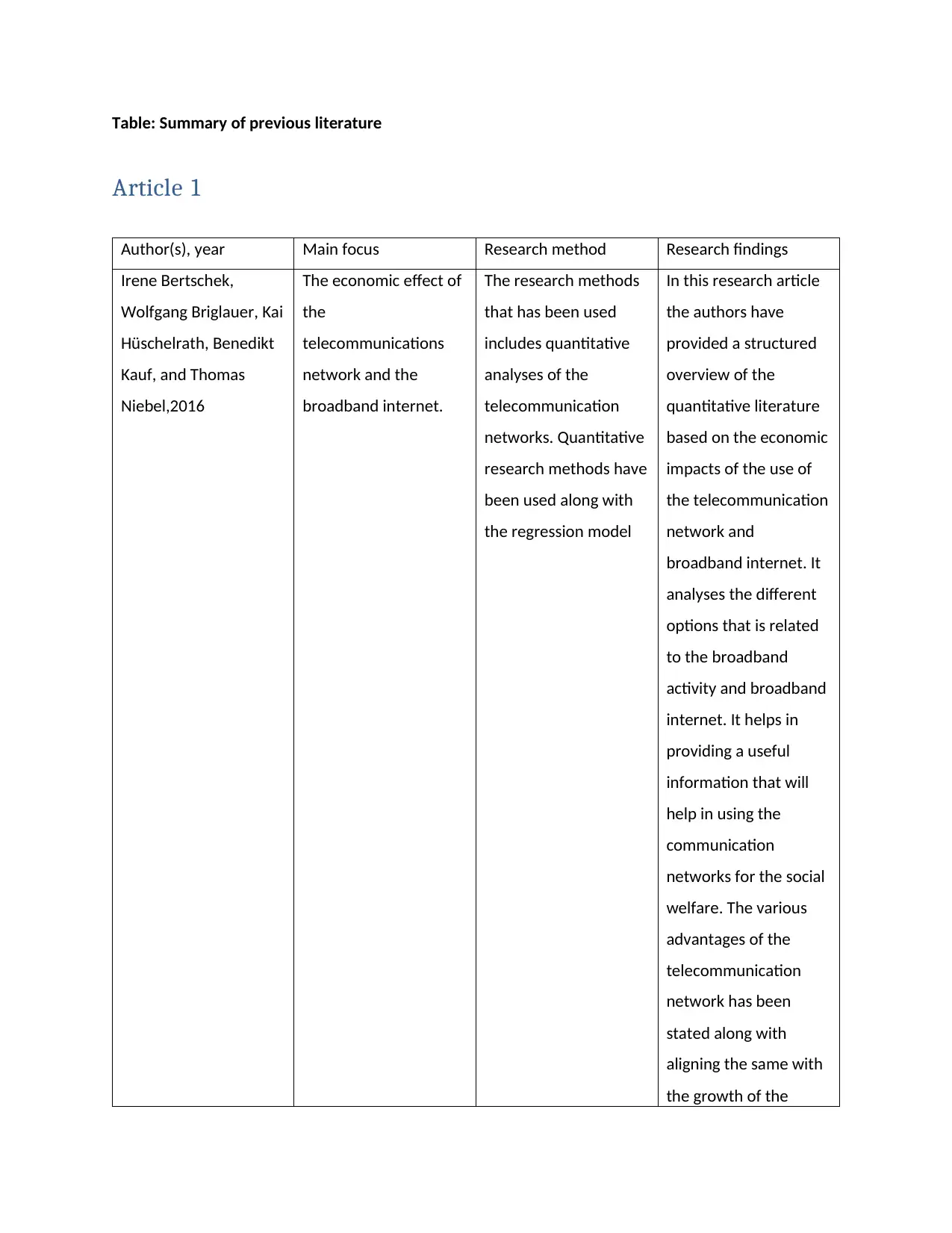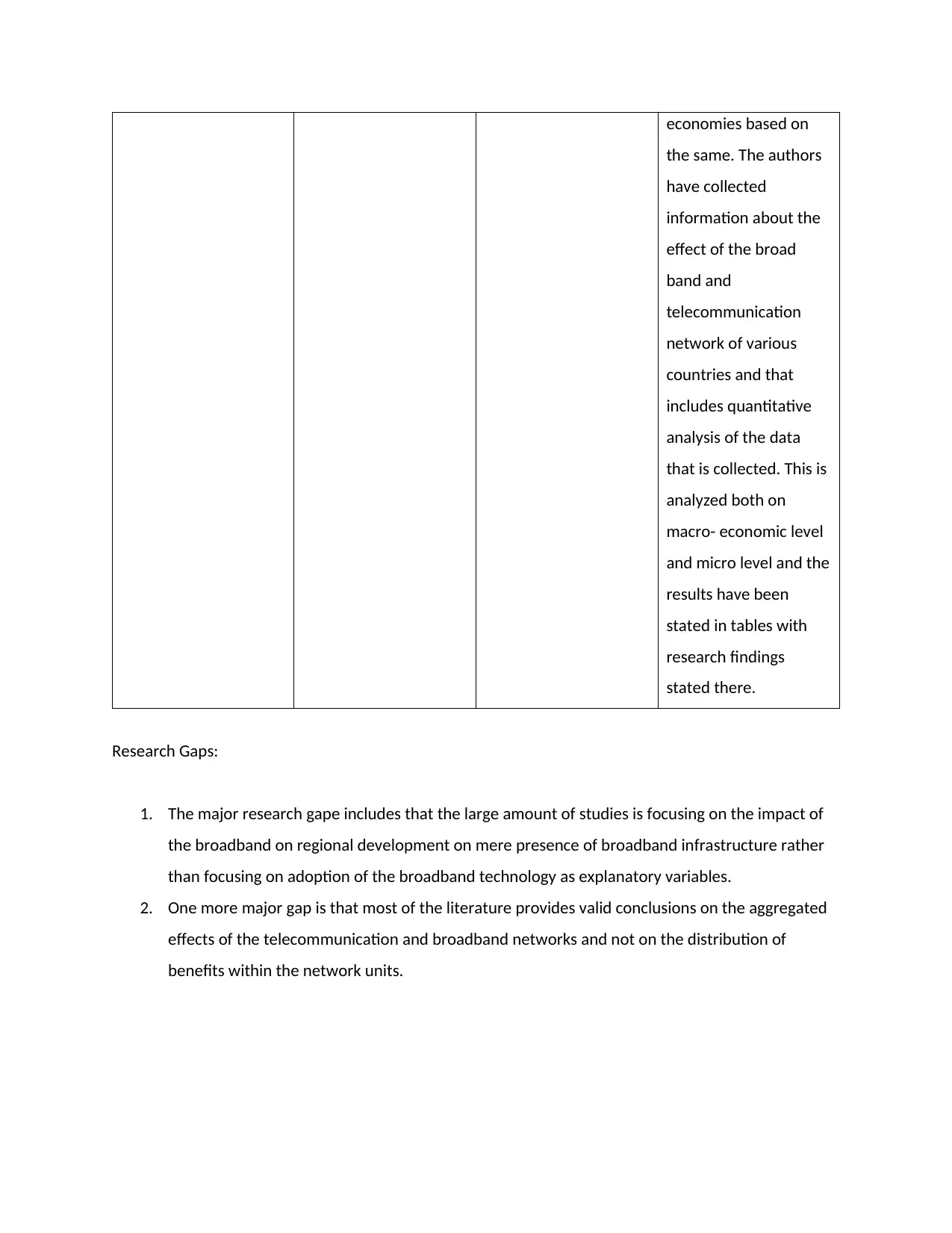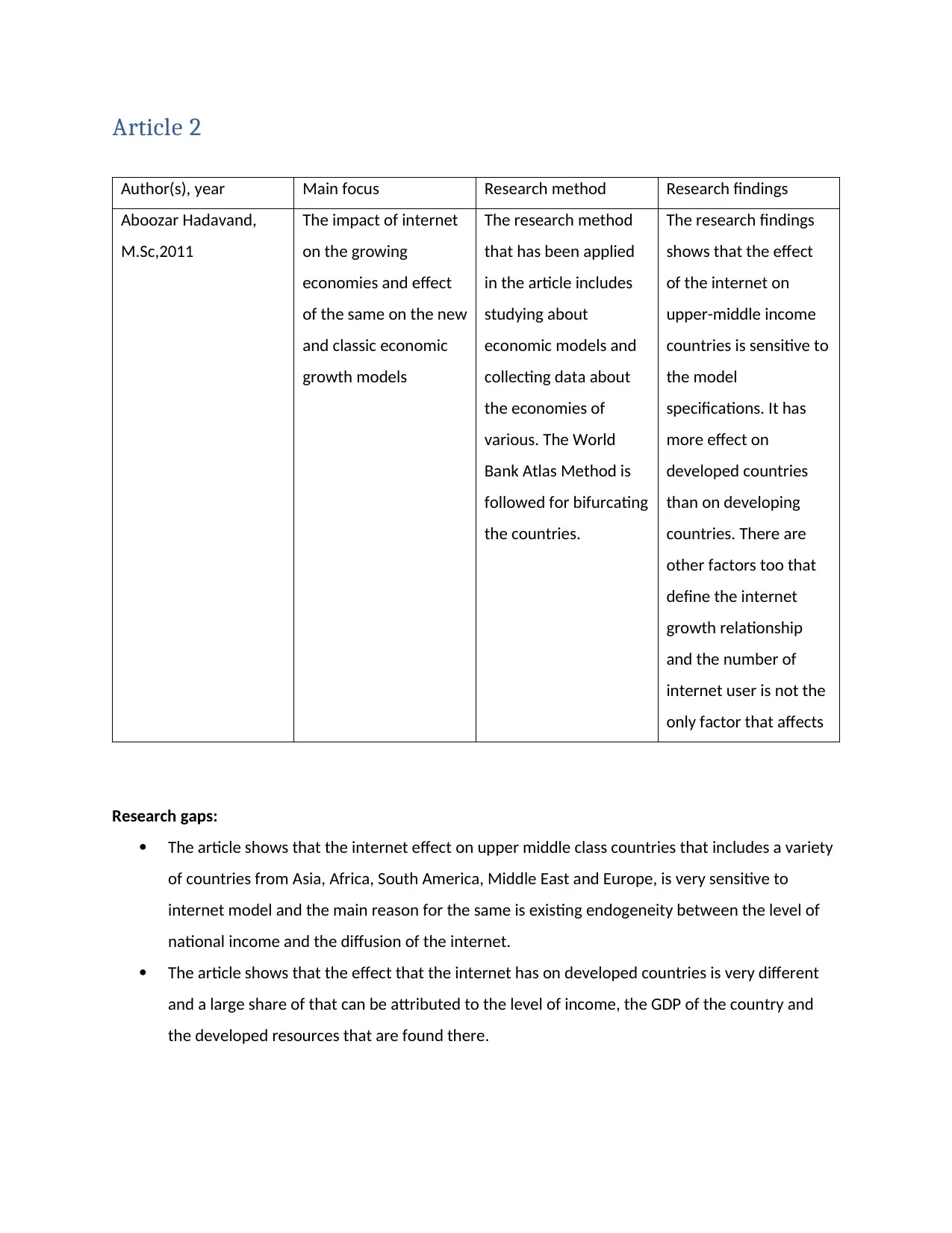Texas Tech University Economics Literature Review: Internet Impact
VerifiedAdded on 2023/01/19
|3
|546
|42
Report
AI Summary
This report summarizes two research articles and a discussion paper focusing on the economic impact of the internet and telecommunication networks. The first article, by Bertschek et al. (2016), provides a quantitative overview of the economic effects of telecommunications networks and broadband internet, identifying research gaps related to broadband adoption and distribution of benefits. The second article, a thesis by Hadavand (2011), investigates the impact of the internet on the economic growth of upper-middle-income countries, highlighting the sensitivity of these economies to internet models and the influence of factors like income and GDP. The report details the research methods, findings, and gaps of each study, offering a comparative analysis of their contributions to understanding the relationship between internet infrastructure, adoption, and economic outcomes. The analysis also discusses the research gaps identified, such as the focus on infrastructure presence rather than adoption and the lack of focus on benefit distribution.
1 out of 3









![[object Object]](/_next/static/media/star-bottom.7253800d.svg)